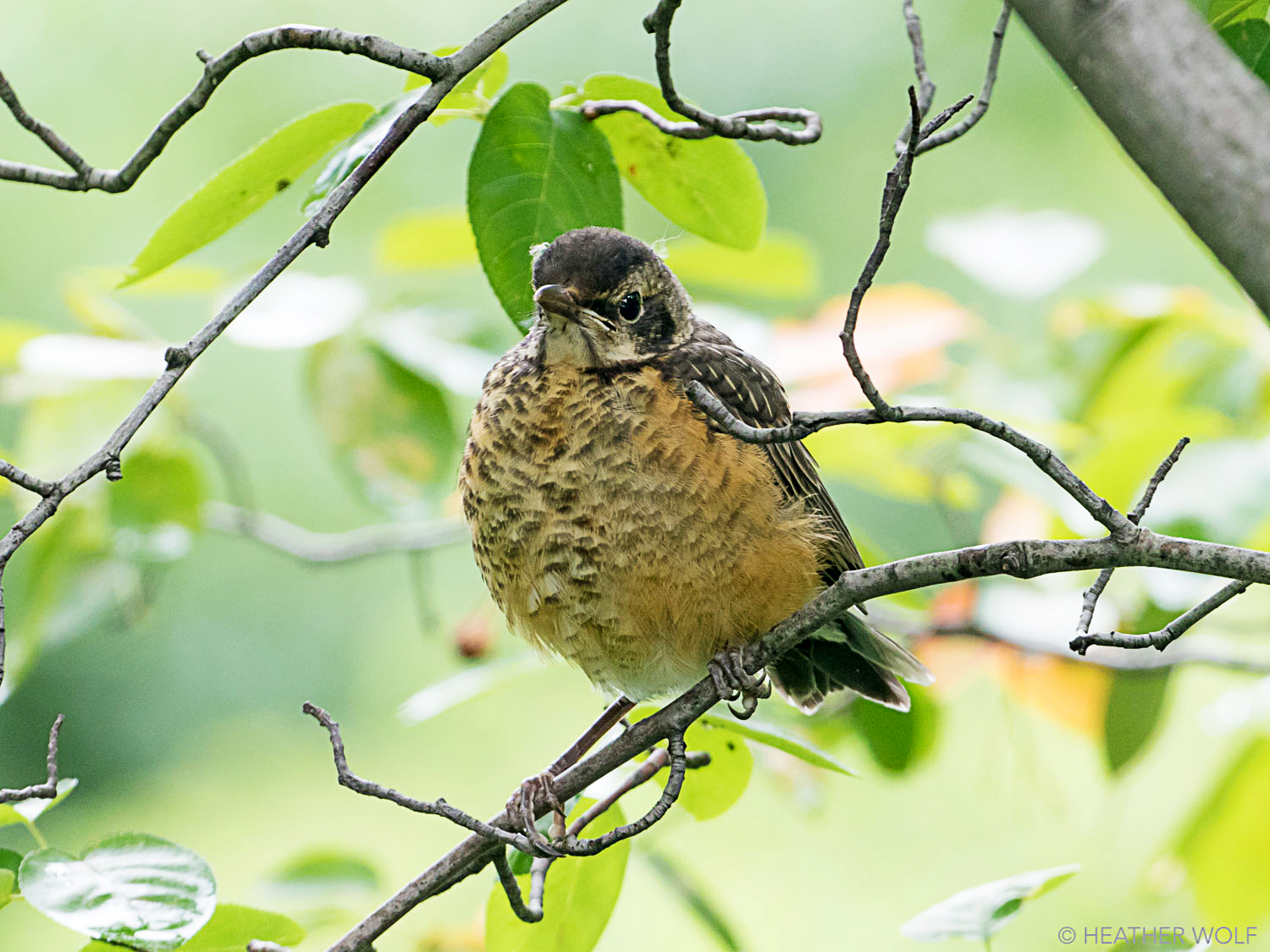Brooklyn Bird Watch: July 30
American Robin Scientific name: Turdus migratorius

Last week Brooklyn Bird Watch featured several excellent Heather Wolf photos of juvenile birds from different species. This week we continue with another juvenile, this one is the American Robin that Wolf photographed in Brooklyn Bridge Park. Juvenile birds are not easy to photograph because, first of all, one just doesn’t see them that often in the wild, and that’s also probably because, with the assistance of their parents they are fed and carefully hidden from predators.
Most people learn from an early age that Robin’s are considered the classic “early bird” and the sight of an adult robin has come to symbolize the beginning of spring. They are common sights on lawns across North America, usually looking for earthworms. Also, as the Cornell Lab points out, many American Robins in fact spend all winter in their breeding range roosting in trees, so they can be nearby year round but you just don’t see them until spring.
Robins are also famous for having bright blue eggs.

Brooklyn Boro
View MoreNew York City’s most populous borough, Brooklyn, is home to nearly 2.6 million residents. If Brooklyn were an independent city it would be the fourth largest city in the United States. While Brooklyn has become the epitome of ‘cool and hip’ in recent years, for those that were born here, raised families here and improved communities over the years, Brooklyn has never been ‘uncool’.